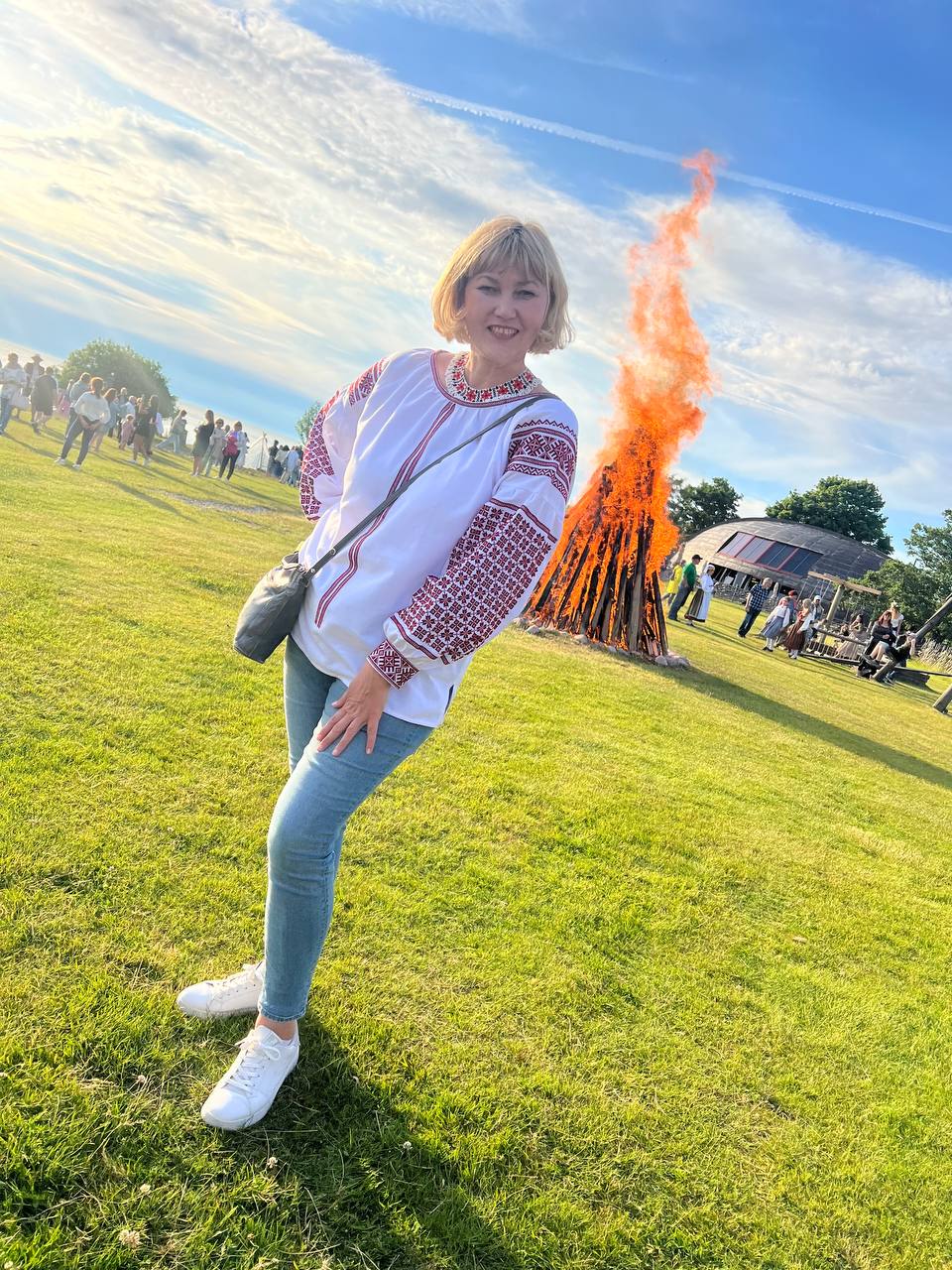Olga from Ukraine lives and works in Tallinn from March 2022 and tells us about her Estonian language studies. Olga is a member of Estonian Society in Ukraine.
Can you tell us about yourself? Who are you and where do you come from?
My name is Olga Sabanska, and I’m from Kyiv, Ukraine. Since March 2022, I’ve been living in Estonia as a refugee. I have a special connection with Estonia because Estonia is my second home country - my mother, grandmother and great-grandfather lived here, which gives me a mixed heritage.
What was your life like in Ukraine before the war?
Before the war, I was studying for my master's degree at the University of Transport and Economics. I had extensive work experience in international road logistics, specifically with the Association of International Road Haulers in Ukraine.
What was the process like when you came to Estonia? Did you find a job easily?
The adaptation process was quite easy initially. I had Estonian friends who helped me find work. I started with cleaning jobs as a temporary measure, and I was fortunate to get involved in a European project related to electronic government. After that, I worked with the International Organization for Migration, where I assist Ukrainian refugees.
How has your experience been finding work in your field?
Finding a job in logistics here has been challenging. The Estonian economy requires fluency in Estonian, usually at a B2 to C1 level, while I’m currently at A2 and progressing to B1. This language barrier has made it difficult to secure a position in my field.
Can you share your experience with learning the Estonian language? What challenges have you faced?
Learning Estonian has been difficult, even with some background knowledge. It requires daily practice, and I’ve noticed that in Tallinn, many people prefer speaking Russian, which reduces my opportunities to practice Estonian. I find it easier to learn in regions with fewer Russian speakers.
How have the local Estonian and Russian-speaking communities welcomed you?
Overall, I’ve received a positive welcome from the local Estonians. However, interactions with Russian speakers can vary. Estonians generally feel more neutral about speaking Russian with Ukrainians compared to how they might feel about Russians, given the current geopolitical situation.
Have you taken any extra steps to practice Estonian outside of formal courses?
Yes, I’ve looked for language cafes and gatherings, but people are quite busy, and the focus is often on immediate results. Estonians often prefer to practice their Russian with me, which makes it harder to immerse myself in Estonian.
What advice do you have for other Ukrainian refugees in Estonia regarding language learning and integration?
I recommend learning basic vocabulary to help with everyday communication. It’s important to aim for A2 or B1 levels, especially for motivation to pass language exams. I also suggest that Estonian foundations consider offering B2 courses, as many of us want to improve our Estonian to facilitate better integration and potential future collaborations.
Is there anything else you’d like to add before we wrap up?
I hope that the connection between the Estonian and Ukrainian communities strengthens during this difficult time. It’s important to support each other and foster positive interactions.
Thank you, Olga! We appreciate you sharing your experiences with us.

The Settle in Estonia Programme is a free educational programme provided by the Estonian state which is intended to help the foreigners who have arrived in Estonia to adapt and become accustomed to local life more easily. We offer courses for people who have come to live or study in Estonia and have lived here for less than 5 years. For example, war refugees to whom Estonia offers international or temporary protection, as well as people who have come to Estonia to work or do business here or relocate with their family member. The adaptation program The Settle in Estonia Programme is free for participants. We offer language training and other courses to help you cope with everyday life in Estonia. Read more and register: https://integratsioon.ee/en/kohanemine. The adaptation programme is co-funded by the European Union and the state budget.
